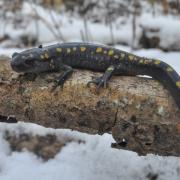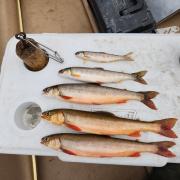
Restoration of Big Wadleigh Pond
The chemical restoration of Big Wadleigh Pond was a tremendous success, reclaiming space for native Arctic charr.
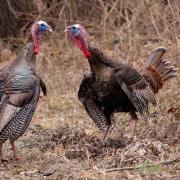
The Great Tick Debate
Have Turkeys Been Wrongly Accused for the Uptick? The best way to address this dispute is to look to science for the answers.
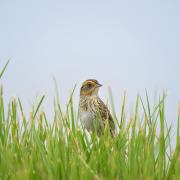
Maine Adds Eight New Species To State's Endangered and Threatened Species List
Eight new species were added to Maine's Endangered and Threatened Species list, including five birds, one bat, one bee, and a beetle. Two of these species, the saltmarsh sparrow and Ashtons cuckoo bumble bee, are listed as Endangered, and the other six as Threatened.

Black-capped Chronicle Issue 12 Summer 2023
A new (and final) issue of the Maine Bird Atlas’ newsletter, Black-capped Chronicle, is now available!
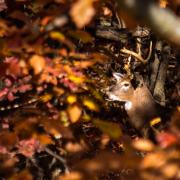
Look Beyond the Leaves
A patient look beyond the leaves reveals truly magical moments of Maine's wildlife in autumn.
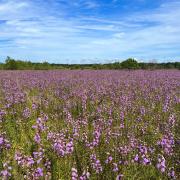
One Million Purple Plants
Late summer pours a tide of purple flowers across the sandplain grassland of Kennebunk Plains Wildlife Management Area.
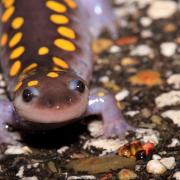
Maine Amphibian & Reptile Atlas Project Final Year
Accurate mapping of reptiles and amphibians is a challenge, but community scientists can make important contributions through the Maine Amphibian and Reptile Atlas Project (MARAP).
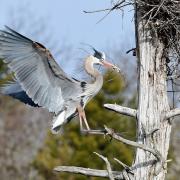
Excitement is Building as the Heron Observation Network Enters Year 15!
Our 2022 results show a slight increase in the number of nesting pairs of great blue herons in Maine, the first time since 2015. We are gearing up for our 15th year of monitoring heron colonies with the help of so many AMAZING volunteers. We will also be conducting an aerial survey to bolster our numbers and hopefully find some new colonies. Spring is coming!
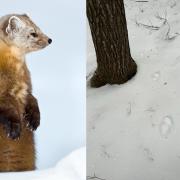
Tips for Tracks
Winter is the best time to learn to identify and interpret wildlife sign. Here are some tips to get started.
Keep In Touch!
Enter your email or mobile number to receive the latest news from MDIFW.
